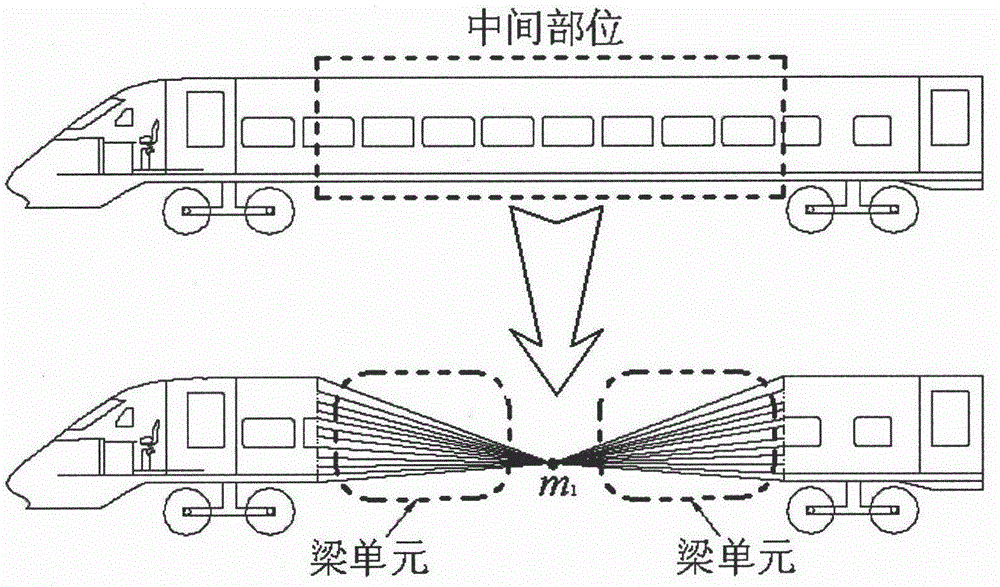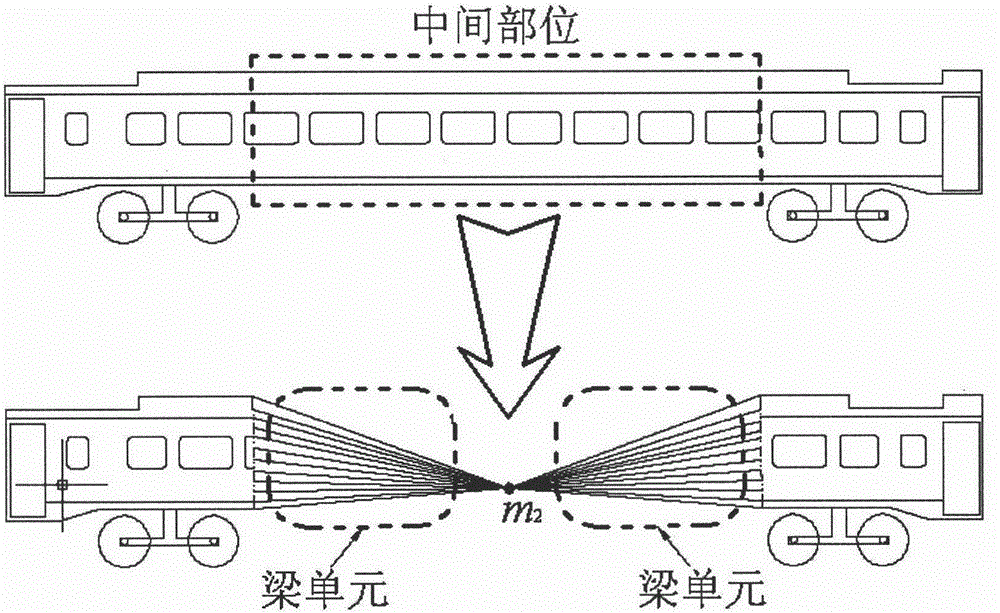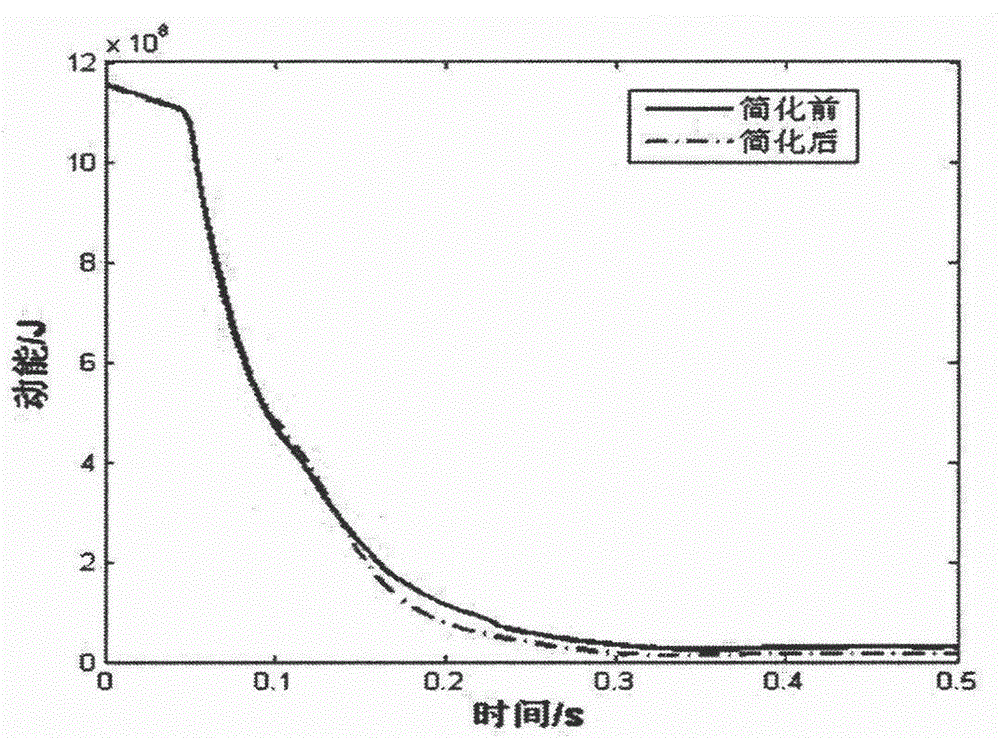A Model Simplification Method for Multi-vehicle Collision Simulation of Railway Trains
A model simplification and multi-vehicle technology, applied in special data processing applications, instruments, electrical digital data processing, etc., can solve problems such as high computer performance requirements, large storage space for models and calculation results, and impact on analysis efficiency
- Summary
- Abstract
- Description
- Claims
- Application Information
AI Technical Summary
Problems solved by technology
Method used
Image
Examples
Embodiment Construction
[0027] A model simplification method for multi-vehicle collision simulation of railway trains. Taking a finite element car body model of a high-speed train as the research object, the car body is simplified. The specific simplification steps are as follows:
[0028] (1) Firstly, carry out the collision analysis between the single vehicle (the head vehicle and the middle vehicle) and the ideal rigid wall at a series of speed levels (such as 5m / s, 7.5m / s, 10m / s, 15m / s, etc.), and analyze the vehicle body Parts that do not undergo plastic deformation (recoverable elastic deformation is allowed), such as figure 1 and figure 2 The middle part shown, extract this part, and calculate its total weight and center of gravity position;
[0029] (2) Use a mass point m for the middle part of the car body analyzed in (1) 1 and m 2 Instead, the mass point m 1 and m 2 The position of is the center of gravity of the simplified part of the head car and the middle car, and the mass point m...
PUM
 Login to View More
Login to View More Abstract
Description
Claims
Application Information
 Login to View More
Login to View More - R&D
- Intellectual Property
- Life Sciences
- Materials
- Tech Scout
- Unparalleled Data Quality
- Higher Quality Content
- 60% Fewer Hallucinations
Browse by: Latest US Patents, China's latest patents, Technical Efficacy Thesaurus, Application Domain, Technology Topic, Popular Technical Reports.
© 2025 PatSnap. All rights reserved.Legal|Privacy policy|Modern Slavery Act Transparency Statement|Sitemap|About US| Contact US: help@patsnap.com



